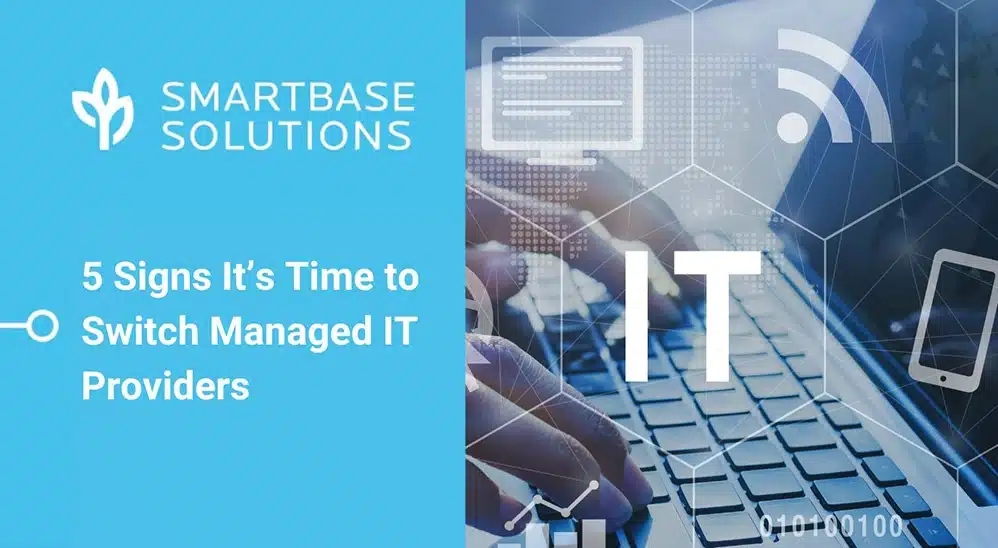When Amazon Web Services (AWS) experiences an outage, the ripple effects are instant—and massive.
From healthcare portals to banking apps, logistics systems to internal communications, organizations of every size were affected by the latest AWS service interruption. It served as yet another wake-up call for IT leaders: relying too heavily on a single provider, no matter how large or reputable, can put your business at risk.
At SmartBase Solutions, we help clients across healthcare, finance, and other high-security industries design resilient, diversified IT strategies that ensure uptime, protect data, and support compliance—even when the unexpected hits.
Let’s break down what happened, what it means for your organization, and how to avoid becoming the next headline.
What Happened with the AWS Outage?
AWS has experienced multiple regional outages in recent years—including major disruptions to services like EC2, S3, and RDS.
In the most recent incident, users across the U.S. reported:
- Inaccessible cloud-hosted apps
- Timeouts in data processing pipelines
- Lost productivity across business units
- Missed SLAs with customers and partners
Even businesses that didn’t host all of their systems on AWS felt the impact due to vendor dependencies, integrated APIs, or shared infrastructure.
The Risks of Over-Reliance on a Single Cloud Provider
While AWS, Microsoft Azure, and Google Cloud offer robust platforms, putting all your workloads in one basket can leave you exposed when issues arise.
Key risks include:
- Single point of failure during regional or service-specific outages
- Limited portability due to proprietary configurations
- Increased vendor lock-in that inflates costs and limits agility
- Compliance risks when regulated data is stored without contingency plans
When you’re in a regulated industry like healthcare or finance, downtime isn’t just frustrating—it can also violate HIPAA, HITRUST, or SOC 2 requirements.
Why IT Resilience Requires Diversification and Planning
To stay protected, your infrastructure needs more than uptime guarantees—you need built-in flexibility, disaster recovery, and cloud-agnostic architecture.
Here’s how SmartBase helps businesses build resilience:
1. Diversified Hosting Strategies
We help clients avoid over-dependence on any one vendor by designing:
- Hybrid cloud environments
- Geo-redundant backups
- Multi-cloud deployments when needed
- Private cloud options for mission-critical or compliance-sensitive workloads
2. Ransomware-Resistant Backups
SmartBase offers immutable, off-site backups that cannot be altered or encrypted by ransomware. These backups can be restored quickly—even if your primary cloud provider is down.
3. Disaster Recovery Plans That Actually Work
Our disaster recovery services go beyond documentation:
- Custom RTO/RPO planning
- Regular restore testing
- Business continuity playbooks for IT and leadership
- Full failover environments in case of regional outages
4. Secure, U.S.-Based Infrastructure
We host workloads in secure, U.S.-based data centers designed for healthcare, finance, and high-compliance use cases. For many clients, that offers peace of mind not found in global hyperscaler environments.
When Reliability Matters, Choose a Partner Who Plans for Failure
The AWS outage proved once again that resilience is no longer optional. Outages, ransomware, and disruptions will happen—but your business doesn’t have to suffer because of them.
SmartBase Solutions helps organizations:
- Recover quickly
- Stay compliant
- Keep operations running smoothly, even when your primary vendor goes dark
Whether you’re looking to build out disaster recovery, migrate away from risky cloud dependencies, or simply audit your current setup, we’re here to help.
Let’s Build Your Resilience Plan
Schedule a consultation to:
- Assess your current cloud exposure
- Identify gaps in your disaster recovery strategy
- Design a secure, diversified infrastructure that fits your compliance needs





